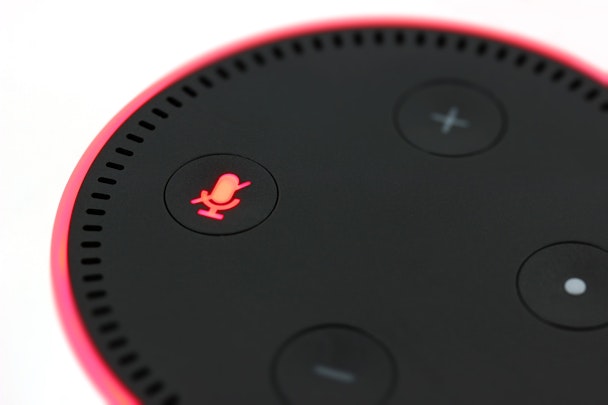Women Vs Machines: why I won’t invite Alexa into my home
I won’t have ‘Alexa’ in my home.

Apart from the fact that I can turn on my lights all by myself, remind myself of what I need from the shops, and can even manage to look out of the window to work out whether I need to take an umbrella, I really can’t stand the idea that this technological monkey that we ask to perform such tricks, has to be a ‘she’. “She’ll tell you anything you want to know” we are constantly assured, as if she is just waiting for a command from her master.
Why does she have to be ‘she’?
It is because the assumptions that society has around clerical workers is that they are white, middle class and - female. As legend has it, when Microsoft carried out development research for Cortana, they researched with human PAs, who of course, were women. No surprise then that we mostly refer to digital assistants as ‘she’, that they have female voices, and are gendered. To the extent that when Cortana first launched the advertising said ‘all you have to do is ask”.
Blade Runner 2049 visualised and personified this very idea in the character of ‘Joi’. She appears to be the helpful digital assistant that by 2049 is a holographic device. But of course she is more than that, she is a welcome distraction, something to placate - or sedate - the masses, and she can be programmed, upgraded and augmented through various applications to carry out all of K’s routine daily demands: a seamless blending of home wife and office wife. A good stab at the probable future of digital assistance but it doesn’t mean we have to like that, or condone that, or think we should settle for that. I won’t collude in this un-feminist future, I want an alternative future, so I won’t invite Alexa into my house.
You may think that this is petty, or a small concern. But writ large as part of the Fourth Industrial Revolution, this outsourcing of a traditionally female role in the workforce, has big consequences.
The World Economic Forum had already previously warned that it will take until 2186 to achieve economic equality between the sexes, that the economic gender gap had peaked in 2013 and was going backwards and that the likelihood was that by 2020 whilst men would gain one job for every three lost to robots, women would gain one job only for every five lost to robots.
This week the World Economic Forum released a new report, in collaboration with Boston Consulting Group, which analyses the job of reskilling the global workforce to ready us for the world of work to come. It looked at likely job transitions in the wake of automation and whilst its focus is on how and where to re-skill workers, one statistic jumps out. Of the 1.4 million jobs expected by the US Bureau of Labor Statistics to be disrupted between now and 2026, the majority (57%) will be among women. The report finds that men have nearly twice as many job transition possibilities as women. Very specifically, the losses amongst secretaries and administrative assistants are highlighted: 164,000 female admin staff are at risk compared to 90,000 men in vulnerable assembly line jobs.
I have been calling this out for the last three years, ever since I saw the film Advantageous which depicts a dystopian world of tomorrow for women. The film tackles the life and work of women in a world that is ageist, that holds women to unattainable standards of lifelong beauty and makes the education of girls expensive and elitist. It tackles sexism, ageism, inequality and adultery, and as Jennifer Phang, the film’s female director says: “We decided to pursue the notion of the neo-traditionalist society where traditional gender roles were experiencing a resurgence due to an economic crisis…reactionary nostalgia for ‘simpler times’…when women’s primary charge in life was to be attractive to men…[and]…when women were satisfied in supporting roles”
Alexa is the ultimate supporting role.
Not only are we programming society’s gender bias into today’s technology, we are carrying those prejudices over into the fourth industrial revolution. We should no longer be worrying primarily about today’s pay gap between men and women but tomorrow’s pay gap between women and machines. The former we are trying hard to overcome, but the latter we could - with a bit of strategic foresight now - prevent from ever happening at all.
Tracey Follows is the founder of Futuremade
